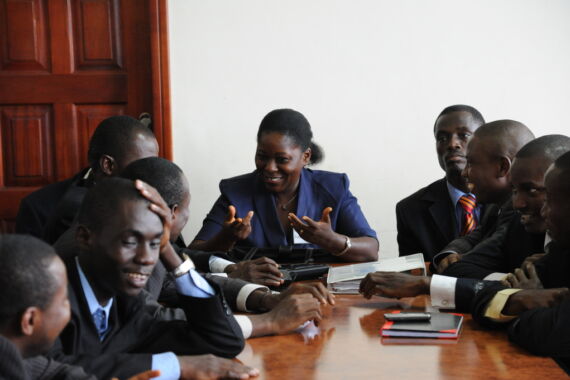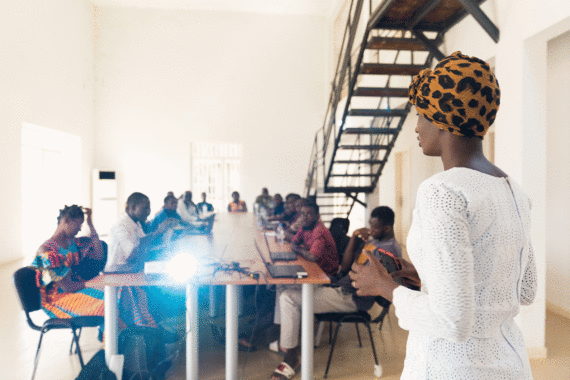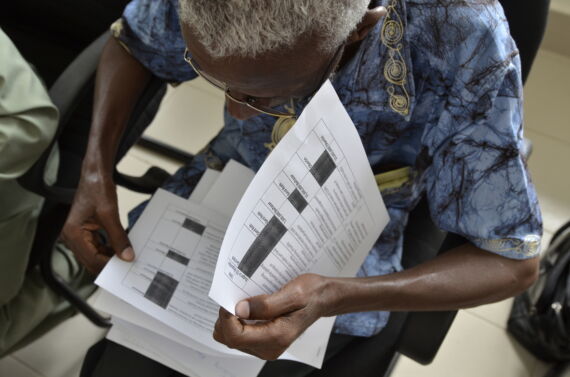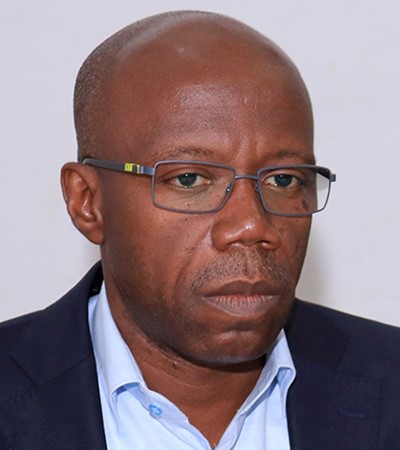| Project Name | CSO’s Contribution to the Success of SDG’s Localization in Benin |
| Commisioned by | Federal Ministry for Economic Cooperation and Development (BMZ) |
| Country | Benin |
| Implementing Organisation | Maison de la Société Civile (MdSC) – www.mdscbenin.org |
| Duration | November 2021 – April 2023 |
The Challenge
National Cluster of Civil Society Organisations (CSOs): In Benin, civil society has become a major non-state actor in democratic processes. CSOs are structured into eight thematic pools according to the sectors they are active in and the pillars of the 2030 Agenda. These pools are organised at different levels: national, departmental and communal.
SDG Priorities at the Communal Level: According to the Directorate General for Coordination and Monitoring of the SDGs, 60 % of the implementation of the SDGs depends on the local level and context. However, many CSOs are not aware that the SDGs are implemented at the local level and are not informed about SDGs that are prioritized in each commune. According to the 2020 alternative report on monitoring the implementation of the SDGs, eight out of ten CSOs were not aware of the SDGs targeted by their communes.
The Objective
The aim of the project is to strengthen CSOs involved in the implementation of the SDGs. By making CSOs actors of citizen watch for the success of SDGs localization in Benin, the monitoring of local development policies can be improved. The influence of CSOs on development issues is strengthened, thus creating a synergy of actions.
The Target Group
The project targets 30 municipalities spread all over Benin.
The target group is divided into two categories: the direct target groups are the members of the thematic pools in which the Beninese CSOs are organised. The indirect target groups are the national and local authorities at the local and national levels as well as the population at grassroots level.
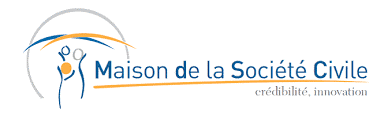
About MdSC
The Maison de la Société Civile du Bénin promotes Civil Society Organisations in Benin to contribute to development actions that can improve the quality of citizens’ life.
The vision of MdSC is to establish a society through which non-state actors participate in dialogue processes with the state in the definition, implementation and monitoring of Benin’s development programmes and policies.
Website: www.mdscbenin.org
The Approach
Capacity Building of CSOs: Initially, CSOs benefit from three training modules: (i) Training on the use of Community Score Cards; (ii) Training on the human rights-based approach; (iii) Training on results-based management to enhance their effectiveness in tracking results.
Introducing Community Score Cards (CSC): The project will implement the CSC methodology to enable feedback to different authorities on SDG implementation and related challenges. CSC form the basis for collecting information in 30 communes to organise advocacy and seek solutions at departmental and national levels. By using CSC, CSOs can increase their knowledge and collect data. At the same time, grassroots communities can share give their opinion on the services offered to them in the presence of service providers.
Enhancing Dialogue: In the second phase of the project evaluation sessions are held in the 30 communes before dialogue is initiated at the departmental and national levels. These sessions bring together CSOs, providers at the communal level and the population. In doing so, a feedback mechanism is implemented from grassroots communities to authorities.
Additionally, multi-stakeholder dialogues at the national level are initiated. The workshops will be held online.
Achieved Results
- 30 municipalities assessed the local SDG implementation via Community Score Cards (CSCs)
- Members of 101 CSOs were trained in the use of CSCs, 114 in the human rights-based approach, and 119 in results-based management to monitor local SDG implementation
- 612 people took part in the in the evaluation sessions for services linked to the spatialization of the SDGs in 30 communes
- 51 people participated in the national dialogue (high-level advocacy) with the authorities on the success of localising the SDGs
Armand Vignon
Director Maison de la Société Civile
In the context of sustainable development, what do you consider the greatest challenge that you help to overcome in your country? What is special about your project and approach, with regard to the context in which it is located?
The real challenge is to make civil society organizations (CSO) credible actors in public policy dialogue with central and local government. Their contribution to achievement of SDGs is crucial: they are close to the people and can provide relevant information on the quality of public services in relation to, regarding the targets. In this perspective, it was necessary to update their knowledge on the SDGs and an information production tool. The results of the process were used to support discussion sessions with local and central government. The project’s particularity consisted of community assessments of the services provided by CSOs. The results fed into departmental and national dialogues around development issues related to the SDGs.
Let’s get specific: What was your most significant project success? What was especially important/notable? What are you particularly proud of having achieved?
The success is in building the capacity of CSOs to monitor spatialization targets in their communities. Dialogues were important; after the grassroots communities gave their opinions on services delivered in the presence of service providers, these meetings allowed actors to take ownership of community’s experiences and to gain insight into the implementation of the prioritized targets in their communes. Together they identified ways to improve services. Proud to have brought together the community and authorities in order to collect recommendations and reform paths for the improvement of local development policy monitoring actions and to create a synergy of CSO actions to strengthen and influence development issues.
What have you learned and what experiences would you like to share with like-minded actors/practitioners?
Lessons learned: (1) the community score card exercise in the targeted communes allowed grassroots communities to discuss their problems directly with local authorities and then feed the information back to the departmental and national levels. (2) The community score card also revealed that some departmental and national authorities are not aware of certain community realities. As a sharing of experiences: it is important to do the Community Score Card exercise at times to record the experiences of community to bring to the attention of the authorities, the reality of what is happening at the grassroots level and the quality of services provided to the population.


